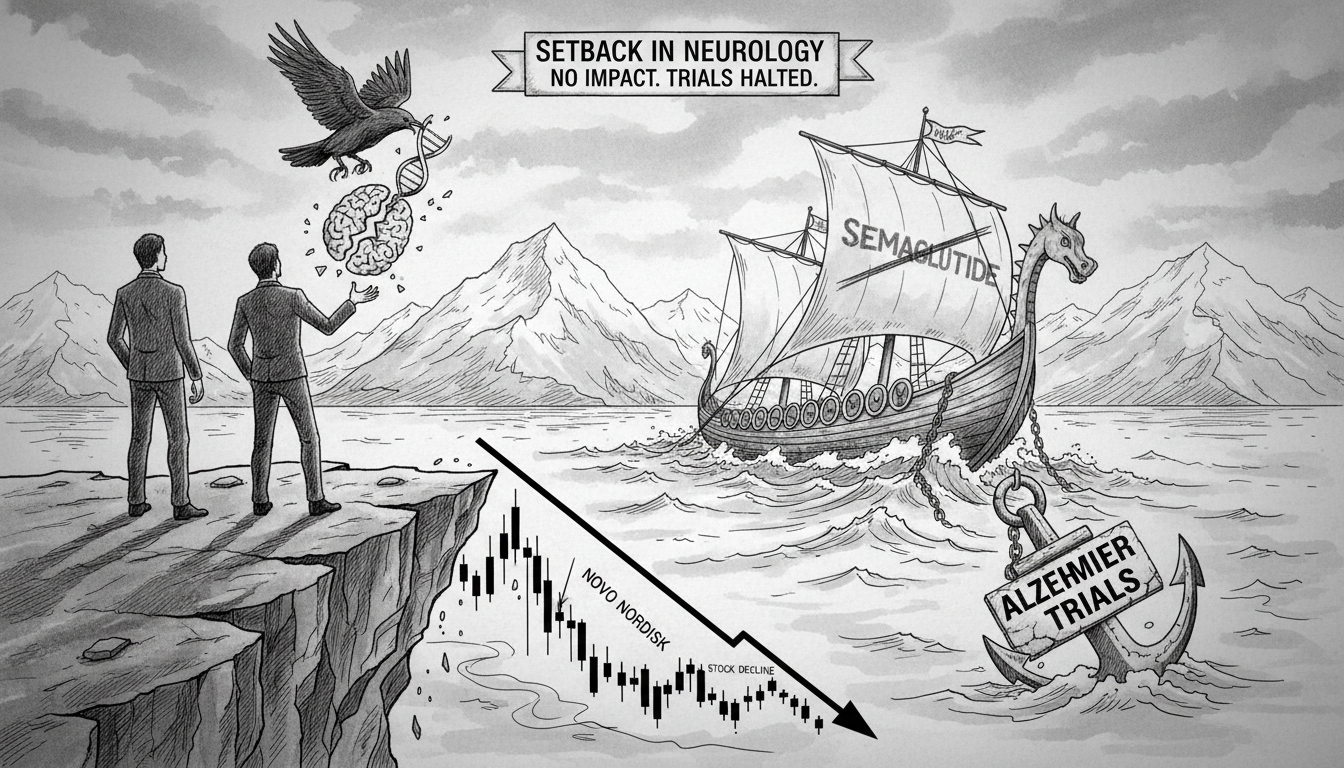Novo Nordisk has discontinued its clinical trials investigating semaglutid's effect on Alzheimer's disease. The pharmaceutical giant announced it found no significant impact on disease progression. This decision came after extensive studies named evoke and evoke+ examined the drug's performance against placebos. Treatment with semaglutid did show improvement in Alzheimer-related biomarkers during both trials. But these changes did not translate into slower disease development, leading researchers to terminate the investigation.
Research chief Martin Holst Lange explained the company's reasoning in an official statement. He noted they felt responsibility to explore semaglutid's potential given the substantial unmet need in Alzheimer's treatment. The company recognized the low probability of success from the beginning yet pursued the research path regardless. This honest assessment reflects the challenging nature of neurological drug development.
The announcement triggered immediate market reactions, with Novo Nordisk's stock dropping over eight percent. The decline occurred within thirty minutes of the news release. This downward movement also pulled the entire Danish C25 index into negative territory. The pharmaceutical setback contrasted sharply with earlier market optimism, as shares had been up one percent before the announcement.
Alzheimer's disease represents one of healthcare's most persistent challenges, affecting millions globally. The failure of semaglutid to demonstrate meaningful clinical benefits highlights the complexity of neurodegenerative conditions. Pharmaceutical companies worldwide have struggled to develop effective treatments despite substantial research investments. This latest development underscores how biological markers don't always correlate with tangible patient outcomes.
For Denmark's welfare system, pharmaceutical innovation remains crucial for sustaining healthcare quality. The country relies on successful medical research to maintain its comprehensive health services. Setbacks like this temporarily affect market confidence but don't diminish the long-term importance of medical research. Denmark continues supporting pharmaceutical innovation through various public-private partnerships.
The research termination doesn't impact semaglutid's approved uses for diabetes and weight management. Those treatments continue showing strong results and remain available to patients. The Alzheimer's investigation represented an expansion into new therapeutic areas rather than questioning existing applications. Pharmaceutical companies commonly test established drugs for additional conditions, though most such attempts prove unsuccessful.
Medical researchers will continue seeking Alzheimer's treatments through multiple approaches. The semaglutid results provide valuable data about metabolic interventions in neurological diseases. While disappointing, these findings help narrow future research directions and prevent wasted resources. The scientific community typically shares such outcomes to accelerate collective knowledge.
This development reminds us that medical progress often involves setbacks alongside breakthroughs. Even well-designed studies with theoretical promise can yield negative results. Such outcomes remain essential for scientific advancement, though they rarely make headlines compared to successful trials. The transparency around this termination helps maintain public trust in medical research processes.

